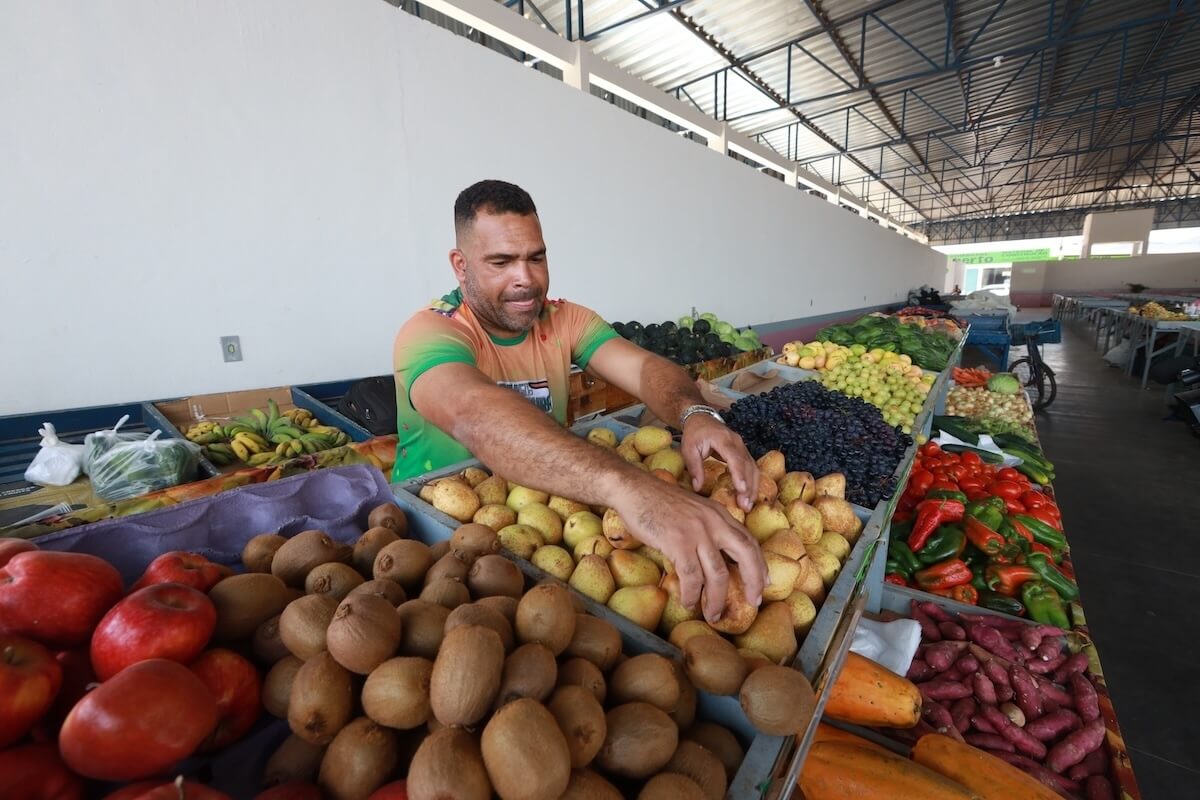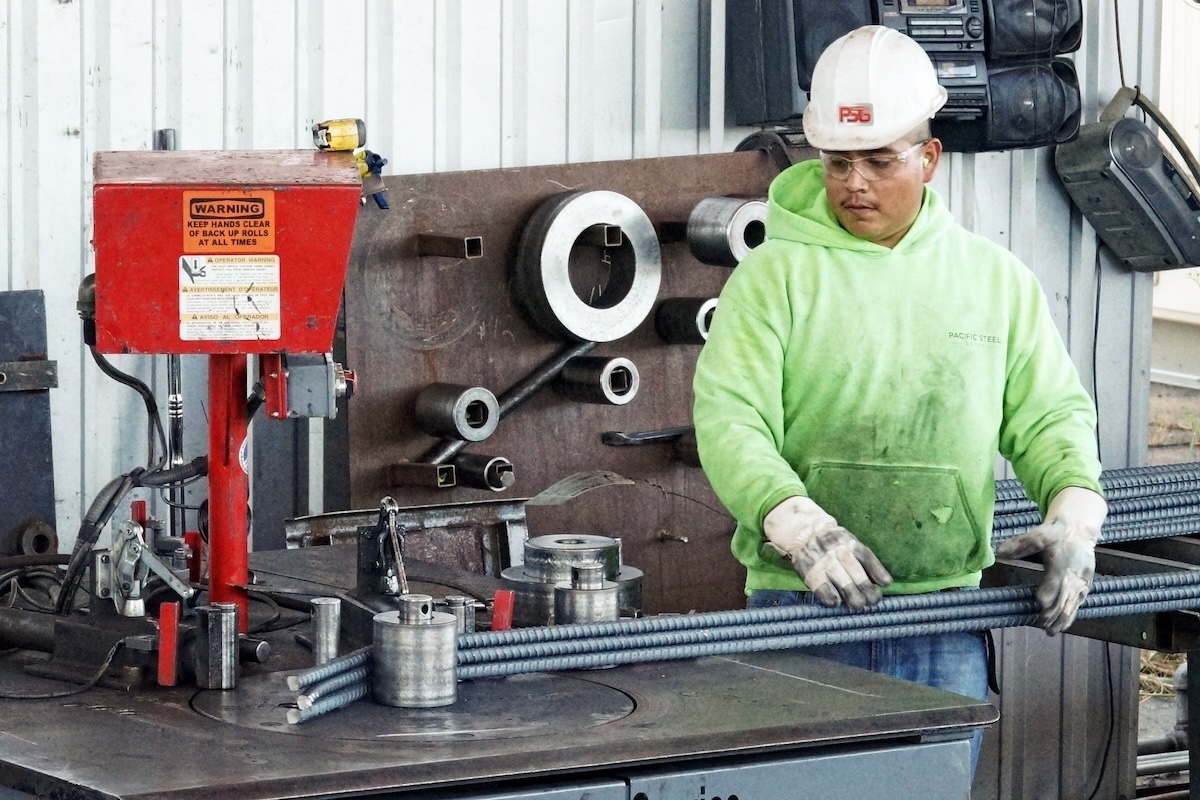Greetings Agents of Impact!
In today’s Brief:
- Inside catalytic transactions
- E-tractors in India
- AI-based gene editing for climate resilient seeds
- Climate tech investment trends
Featured: Catalytic Capital
How catalytic capital is spurring ecosystem regeneration in Brazil. The ripple effect is real. The provision of affordable debt to São Paulo-based Fama re.capital by a Brazilian family office helped the agriculture fund manager attract additional capital to make loans accessible to small farmers in remote communities. Those smallholder farmers, in turn, were able to earn a reasonable living with regenerative land-use practices and reduced deforestation. The investment by the family office, Meraki Impact, in the Fama Gaia Socio-Bioeconomy Fund “provided much-needed financing to farmers at a crucial time during harvest season and increased the fund’s visibility, attracting more investors and partnerships,” writes Toniic’s Dario Parziale in the first in a series of catalytic capital case studies on ImpactAlpha. The series examines the impact of investments that intentionally accept disproportionate risk and/or concessionary returns to close capital gaps. The case studies are pulled from Toniic’s database of catalytic capital transactions.
- Seeding impact. Smallholder farmers and Indigenous communities serve as stewards of Brazilian biomes. But many struggle to access financing that could support regenerative agriculture businesses as alternatives to destructive deforestation, logging and monoculture farming. Traditional banks can charge annual interest rates of 30%. Fama Gaia offers loans at between 12% and 16%. With below-average return expectations, Meraki’s catalytic capital helped Fama Gaia demonstrate its impact. Meraki’s investment also sent a signal to other investors, substantiated the fund’s model, and attracted interest from the broader impact investing community.
- Catalytic deals database. Toniic has compiled detailed information on 215 catalytic capital transactions totaling more than $260 million. In addition to Meraki Impact’s deals, the database includes transactions by Prime Coalition, Azolla Ventures, ReFED, Rethink Ireland, and Toniic members themselves. The majority of capital deployed leveraged price – in the form of lower returns or uncompensated risk – to get deals done. More than 100 of the transactions detail financing deployed to companies, while over 40 deals reflect capital flowing to funds.
- Keep reading, “How catalytic capital helped unlock ecosystem regeneration in Brazil,” by Toniic’s Dario Parziale on ImpactAlpha. Take a spin through Toniic’s catalytic capital transaction database. Have you been part of a catalytic deal? Add the details to the database through this short form.
Dealflow: EVs in India
Moonrider raises early funding to introduce electric tractors on India’s farms. Moonrider, a Bangalore-based heavy-duty electric tractor manufacturer, was founded in 2023 by two entrepreneurs who had previously worked for Toyota, Volvo, and Indian EV makers NAE Mobility and Ola. They designed an electric tractor and battery to reduce long-term costs for farmers by eliminating the need to buy diesel fuel. The e-tractors are reportedly at price parity with diesel-powered versions. Moonrider secured $2.2 million in seed funding for its battery and software development from two Indian mobility-focused VC funds, AdvantEdge Founders in Delhi and Micelio Technology Fund in Bangalore.
- Electric two-wheelers. Also in Bangalore, Oben Electric raised $6 million in a Series A round to get its electric motorbikes onto India’s roadways. Investment in India’s EV makers has been a strong point in the country’s venture ecosystem; most of the funding goes to electric two- and three-wheel vehicles, which dominate India’s roadways (see, “Small vehicles have investors thinking big about India’s e-mobility transition”). Oben has two electric bikes in the market and is gearing up to launch a lower-cost “mass market” model priced at 90,000 rupees (about $1,000), as well as a new, heavier-duty motorcycle.
- Families for EVs. Oben’s round is notable for the participation of two Indian family offices, the Pravek Kalp Family Office, whose wealth comes from ayurvedic medicines, and the Polyplex Family Office, which serves the family behind polyester manufacturer Polyplex. India’s roughly 300 family offices hold an estimated $30 billion in assets. They are increasingly exploring responsible and impact investing strategies, and making direct investments in impact-aligned sectors that are “poised for growth,” such as healthcare, technology and renewable energy, according to PwC.
- Share this post.
Inari rakes in $144 million to scale production of lab grown, climate resilient seeds. Cambridge, Mass.-based Inari uses AI to speed up plant breeding and gene editing to create high-yielding, climate resilient seeds for commodity crops such as soy, corn and wheat. The wheat genome, for example, contains about 120,000 genes – six times the genes in the human genome, according to Inari. The company says its seeds require less water and fertilizer and boost crop yields as much as 20%. The round, which brings Inari’s total equity raised to $720 million, was backed by the State of Michigan Retirement System, Australia’s NGS Super, South Korea’s Hanwha Impact, and a subsidiary of the Abu Dhabi Investment Authority.
Dealflow overflow. Investment news crossing our desks:
- Arctaris Impact Investors made an undisclosed equity investment in a $30 million hotel-to-residential project located in an Opportunity Zone in downtown Baltimore. The adaptive reuse project will create 303 units of workforce housing. (Arctaris)
- Waterpoint Lane closed its inaugural sustainability fund to invest in growth-stage sustainable food and agriculture companies. The Toronto-based venture capital firm had a $7.5 million target for the fund, according to an SEC filing. (Waterpoint Lane)
- Zoplar, in Gurgaon, raised $3.4 million from Blume Ventures, Beenext, Saison Capital, Atrium Angels and other investors to help India’s small hospitals procure medical equipment. (Entrepreneur India)
- Investors in the E8 Angels network, which invests in clean tech companies, committed a combined $800,000 to energy storage provider Atlas Power Technologies, small-scale and community wind developer Pecos Wind Power, and Cecilia, which recycles plastic waste into new materials. (E8 Angels)
Signals: Climate Tech
Climate tech investors retool for a changed landscape. Climate tech investment will shift shapes in the year ahead. Out: EVs and big battery deals. In: geothermal, nuclear and other clean, reliable power to supply the AI data center boom. “We’ve seen the first generation of climate tech – wind, solar, batteries – graduate to private equity and project finance, leaving VCs to nurture the next generation of clean fuels, industrial decarbonization, clean firm power, and more,” write Kim Zhou and Mark Taylor of Sightline Climate in their “2024 Climate Tech investment trend“ report. “Alongside the climate transition, we’re in the middle of a funding transition.” Some highlights:
- New normal. Climate tech investment reached $30 billion billion in 2024, down 14% from the previous year – a much shallower drop than the 24% plunge from 2022 to 2023. Deal count was flat, numbering 1,460 deals compared to 1,468 in 2023. The US presidential election chilled activity in the typically brisk third quarter; this year’s $7 billion in deals was half the size of Q3 2023 funding. The expected rollback of climate-friendly policies under president-elect Donald Trump has created uncertainty (see, “Finding impact alpha in climate: Betting on the low-carbon transition, against the odds”). The Sightline authors nevertheless see climate tech venture and growth investment settling into “a new normal” after recent peaks and troughs.
- Power plays. Investments in geothermal energy nearly tripled last year to $558 million, while money flowing to nuclear deals almost doubled, to $1.9 billion. Among the top deals of 2024: San Francisco-based Crusoe and São Paulo-based Scala, which raked in $600 million and $550 million respectively to develop clean energy for data centers. X-energy, a Maryland-based nuclear energy developer, raised $500 million. Battery tech, which notched some of the biggest deals in recent years, is expected to wane as EV momentum slows. Northvolt, a Stockholm-based battery maker and recycler, filed for bankruptcy in November after hauling in $5 billion last January.
- Exit ramps. Despite all the grumbling, climate tech exits hit a four-year high in 2024, with 178 tracked mergers, acquisitions, IPOs and SPACs. That’s up 136% from 2023. The bulk of the activity fell into the M&A category, with European oil and gas companies such as TotalEnergies looking to fill out their low-carbon offerings. Most of the deal values were undisclosed, a signal of “smaller outcomes,” Sightline notes. Many observers expect IPO and dealmaking prospects to pick up this year under Trump’s regulation-light regime.
Agents of Impact: Follow the Talent
Mark Carney, former governor of the Bank of England and chair of impact investing at Brookfield Asset Management, is mulling a run to become Canada’s next prime minister… Paul Helmsing, previously with Wire Group, joins De Hoge Dennen to manage its impact fund portfolio… Taylor Rowe, previously with CIV:LAB, joins Energy Impact Partners.
Traven Joseph, previously with Island Mountain Development Group, joins Raven Indigenous Capital Partners as an investment analyst… Beyond Capital Ventures promotes Shiddhi Gupta from investment fellow to investment analyst… HSBC promotes Zoë Knight to global head of sustainability and integration… Kai Preugschat of Qatar Development Bank joins Acre Impact Capital’s advisory board.
GSG Impact is hiring a knowledge manager in London… British International Investment is recruiting a financial services development impact executive… Deutsche Bank’s community development finance group is looking for a portfolio analyst in New York… The deadline to participate in the GIIN’s 2025 Impact Investor Survey is Friday, Feb. 28.
👉 View (or post) impact investing jobs on ImpactAlpha’s Career Hub.
Thank you for your impact!
– Jan. 8, 2024












